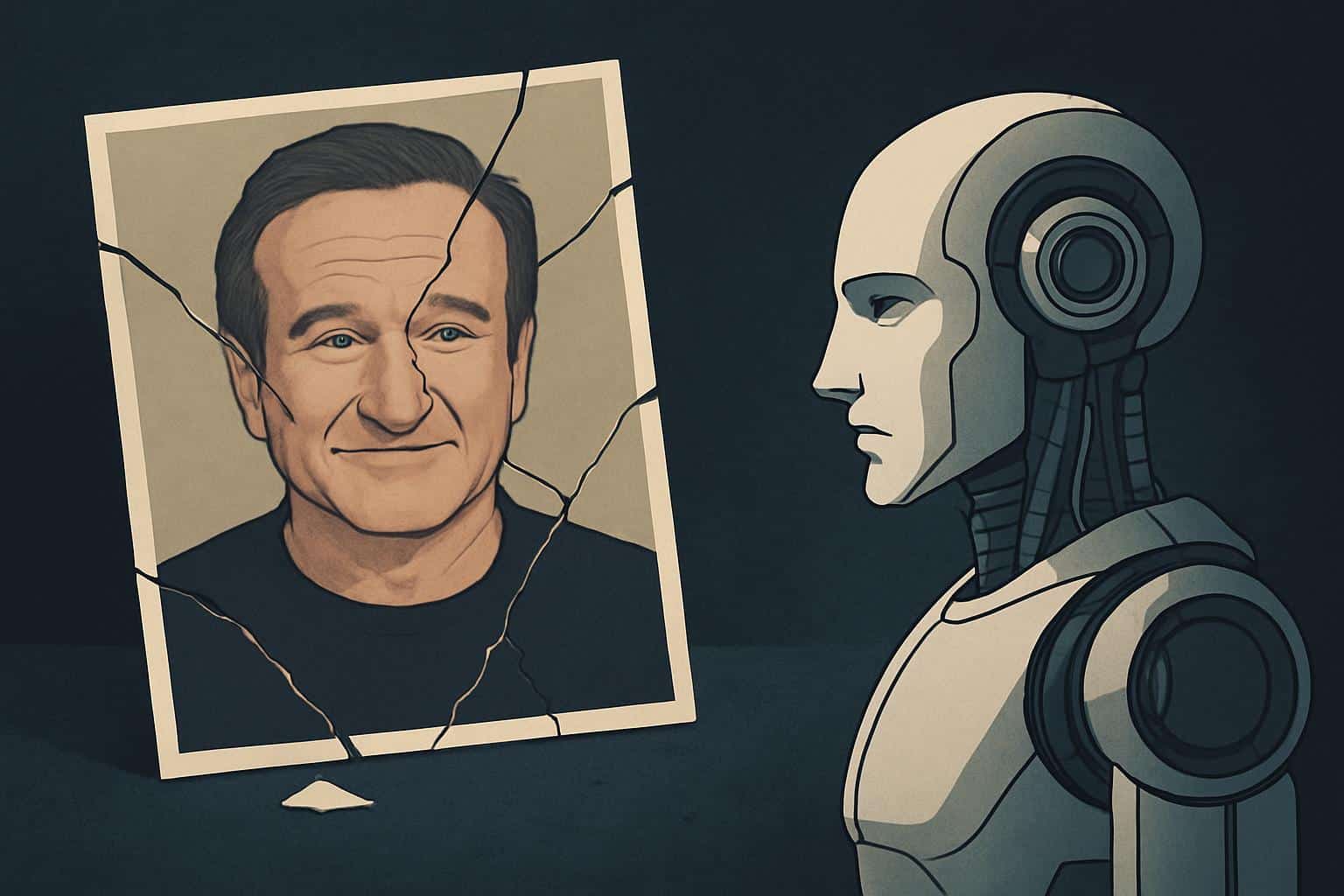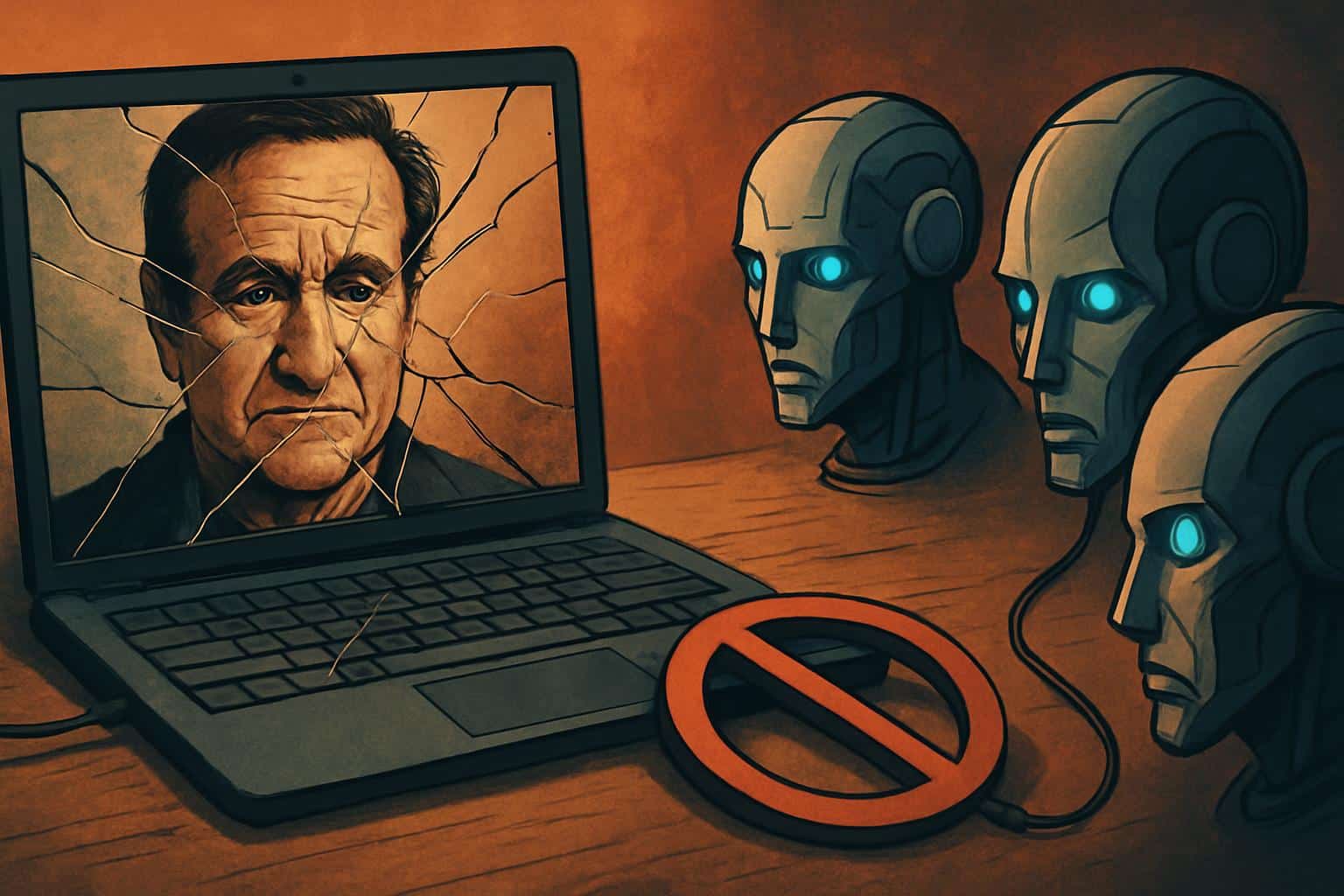Zelda Williams has a modest plea to the internet and to Hollywood studios that are flirting with synthetic stardom: please stop bringing back her father with artificial intelligence.
The daughter of the late Robin Williams has taken issue with AI-generated variations of his voice and visage, likening them to “exploitative” clones that go against what he would have wanted as an artist. Her rebuke comes as the entertainment industry rushes forward with machine-built performers, digital simulacra — even as audiences and unions sound the alarm over questions of consent and dignity.

A Line Drawn on the Personal Against Synthetic Resurrection
In a frank plea to both fans and trolls, Williams asked that people stop sharing AI clips which are trying to influence her father’s energy.
She cast the trend as an exploitation of grief and a perversion of performance that was disrespectful to the artistry: For all the time a model is trained by heart or handbook to sew together familiar cadences, it isn’t honoring a legacy — it’s hollow mimicry. For families, she said, these are not consolations; they open wounds and substitute the lapidary work of memory with an empty simulacrum.
Her critiques reflect concerns increasingly being voiced across creative disciplines: a neural network can’t consent; it can’t choose; and it shouldn’t bear the burden of performing. What appears to be tribute often crosses the line into appropriation — of a person’s art, voice and history — without the victim’s consent, or nuance.
Consent Rights, and the Legal Patchwork
AI replicas pose a thorny question the law is just now beginning to address: Who owns an artist’s image and voice after they die, and how are they allowed to be used? States including California grant postmortem publicity rights for decades after death, and New York’s newly updated right of publicity law includes clear protections for digital replicas of performers. But enforcement is inconsistent, particularly online, and the dividing line between restoration, parody and fraudulent deepfake can be hazy.
Industry rules are also changing. The deals SAG-AFTRA and the Writers Guild of America reached for 2023 include a need for consent and compensation when digital doubles are made, as well as limitations on uncredited AI authorship. AI companies are refining policies, too: OpenAI, for instance, has baked in guidance for its video systems not to impersonate currently living public figures, leaving a gray area around those who have died that estates and platforms still need to work their way through.
Public sentiment leans cautious. Polls conducted by organizations such as Pew Research Center and the Reuters Institute have found majorities concerned about distinguishing between real images and voices, and synthetic ones, especially in news and politics. Safety researchers at Sensity AI have consistently found that most deepfakes online are nonconsensual rather than benign novelty — proof that consent isn’t an esoteric issue but a real one.
Studios Experiment With AI As Backlash Grows
Nevertheless, amid the ethical heat, we keep aspiring to AI-enabled projects. Tech-based initiatives have taken aim at lost or incomplete classics for algorithmic “restoration,” and blockbuster showcases of AI-enhanced heritage films in new venues have amplified the hype. High-profile filmmakers have split: some calling for mastery and integration of the tools, others cautioning that convenience must not trump authorship and consent.

At the same time, other models of fully synthetic performers are being introduced by companies. One new virtual actress, developed by an AI talent studio and designed to fill traditional film roles, was immediately met with comparisons to real-life actors, sparking a debate about whether such avatars amplify human creativity or quietly subsume it. The reaction highlights a central tension: Audiences may love newness, but they still increasingly come to movies for something human and unreplicable — the breath between the lines, the missed beat that becomes definitive, the risk of live performance.
The unease isn’t hypothetical. It’s come under fire already from documentary projects that have been criticized for washing AI-cloned voices of the dead into narrations without making it explicit. When synthetic speech or likeness does arise, transparency and permissions are every bit as important as the technical gloss.
The Human Cost of Deepfake Memorials and Tributes
Williams reverses the trend, putting it into human terms. For families, AI portraits can be yet another form of possession of the self — identity theft with a sentimental sheen. Or, for audiences, they can muddy the difference between what is real and a craft traded for an uncanny shortcut. Working actors and craftspeople, too, will find their wages and credit in play if studios use datasets of human performances to automate the work those performers once earned.
There’s also the question of intent. Algorithms are good at reproducing the surface of things — round, jittery faces with beady eyes and muffled bass; wooden characters running their fingers over tree bark like Braille. Great music is not merely the sound of something; it means something, too — to which people attach their own emotional directions over time. To turn another poet and what he did into an echo of statistical fun fails to capture that writer’s agency, the reason why the echo resounded in the first place.
Toward Ethical Standards Fans and Studios Can Get Behind
There are workable guardrails. Estates and performers should be asked — at the very least, publicly and in writing, I think — if they consent to have a digital replica of themselves made. Projects using synthetic media must clearly disclose that they are synthetic, and should not imply that a person has said or done something in words or action when they have not. Labels and watermarks can work, but must be combined with distribution rules that discourage abuse. It’s crucial, too, that datasets be compiled from properly licensed, opt-in material, instead of scraped archives of someone else’s life.
“Some collaborations already do point a way ahead — voice work signed off on by iconic stars and their estates, for example, or restorations handled by rights holders with clear credit and payment,” he added. Progressive regulation in the EU is focused on traceability and disclosure when it comes to deepfakes; similar standards are found, for example, in U.S. legislation, and collective bargaining can provide clarity without freezing technological evolution.
Zelda Williams has drawn her line on public discourse because the stakes are too personal. It’s a reminder that there is a human face behind each dataset, and the magic of on-board theatre does have permission. If Hollywood really does want to honor its legends, the first step is pretty straightforward: seek permission, tell the truth and allow those who are still living — and also those who have died — to make their own decisions about how their voices will be used.

